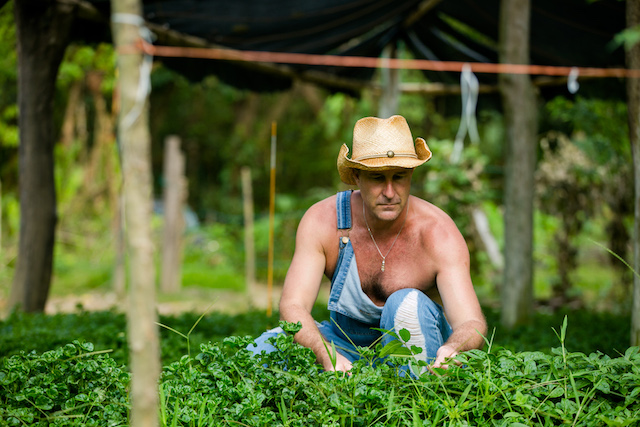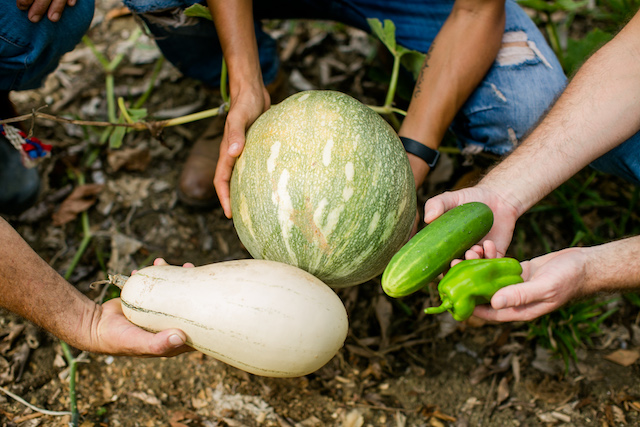
During the One Month Immersion Yoga Teacher Training here at Blue Osa, I began the morning with a discussion on Karma, particularly the practice and patience that is needed for us to reap the benefits of the seeds we sow, as well as the importance of being honest with ourselves in our practice.
To explain this concept, I used the idea of gardening. Once a seed is planted, we must wait for the seed to take. We must water it, provide it a safe environment (nurture it), and most importantly give it the necessary amount of time to grow into what it is intended to be. Some seeds only take a few days to gestate and grow. Some seeds take a few weeks or months. And then some take years before its plant will bear any fruit.
The same is true to see the results of our Karma. To fully realize the effects of our practice, we must give it the necessary amount of time and must exercise the right amount of patience to yield the best fruit it can offer. Yet often, when we plant a seed of action or intention, we go back after a couple of hours, a couple of days, or a couple of weeks and expect it to be fully formed. If you go back to your garden and remove the dirt from the seed you planted yesterday, it’s likely that very little will have happened, and most assuredly it will not have fruit to bear.
The key to bearing the fruits of our actions is, as I said in this lecture, to keep practicing and stay patient. Stay in the endeavor. Often times the effects of our practice can be subtle, and subtly over time can equal great transformation for the practitioner.
So how do we know if our practice is working or not? How do we know if the Karma or seeds we sow are taking root? Awareness. It is only through being aware of our actions that we can truly begin to know the depth of our work. And the key component to true awareness is honesty. We must be honest to ourselves about that which we witness. Perhaps the seeds you have planted are not good for you. Be honest in your sowing and there can only be benefits in the reaping.

In this context, I was referring to the Chakra of Karma (habit patterns). Each time we enforce a habit, that habit gets stronger and takes deeper root. So if we are instilling and enforcing negative habit patterns, our lives will be chaotic. We must have discernment in the types of actions in which we participate and in doing so we reinforce only positive habits, making our Chakra of Karma cleaner. We must plant only seeds whose fruit will truly nourish us on our path.
Learn more about Yogi Aaron’s journey in his recently published autobiography!


Nice blog! Very well written in an easy-to-understand manner. I appreciate your sincere efforts you have made in writing this kind of informative blog. Keep sharing!
Hi Aaron! I really appreciate your blog and your work in general!
Namaste!
samsarayoga
Hi Aaron! really its wonderful blog post, I enjoyed to read it. Thanks for sharing such beautiful thoughts.
Hi Aaron,
I appreciate the way you shared such great information. I am happy to find such an informative post after so long. Hope more to come as I’m an avid reader. I tried to educate myself as much as possible.
You are so welcome. Please share. ??
I would have embolized the fistula and not exposed the patient to restenosis in the prox lad using the joined graft unless the size of the fistula prohibited safe coil embolization. assuming the guide shots are with a 6f system the fistula does not appear to be larger than 3mm. this is a more elegant solution that avoids trauma to the lad. Another thought: does the fistula need embolization. the ant wall ischemia may be due to the stented lad atherosclerosis and nothing to do with the fistula. A shunt study should be performed prior to deciding to close the fistula by whatever method. great case for discussion!.
I love the term Chakra Karma!